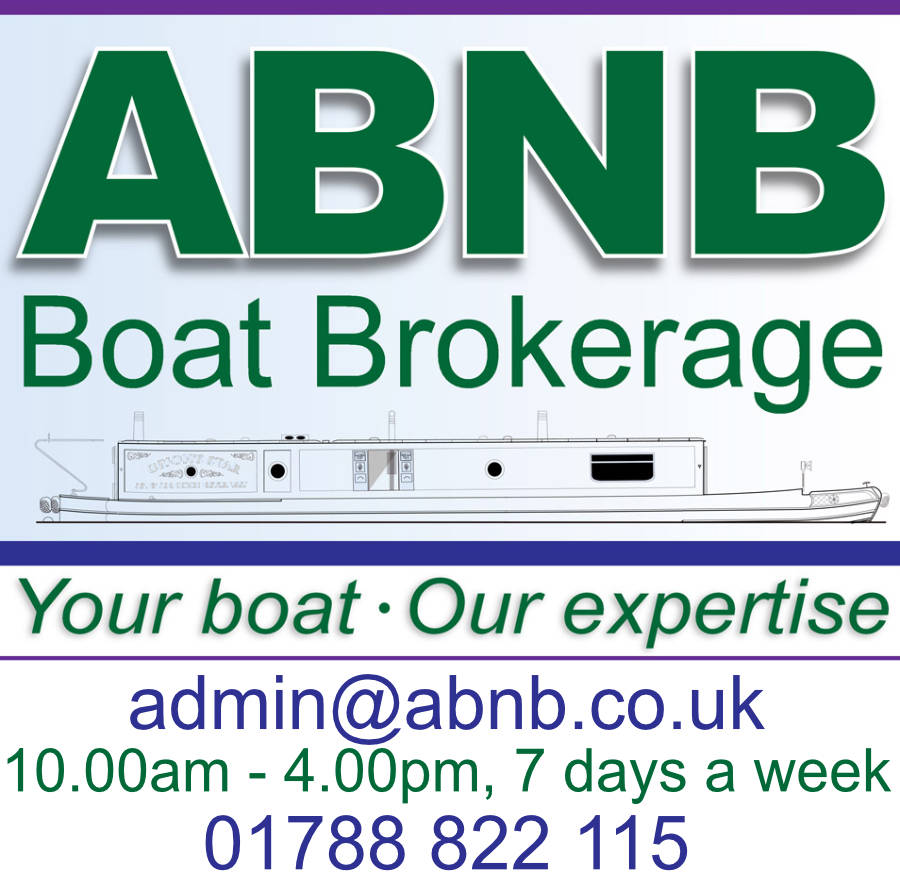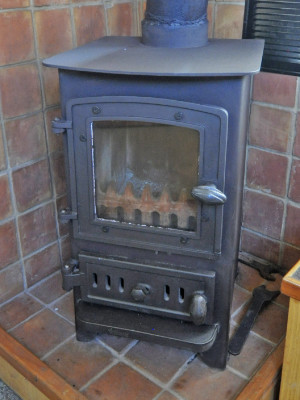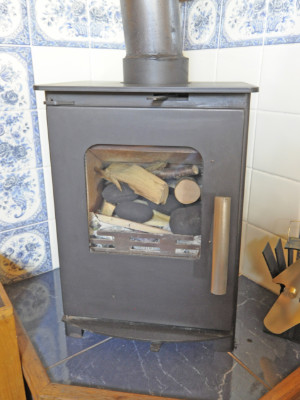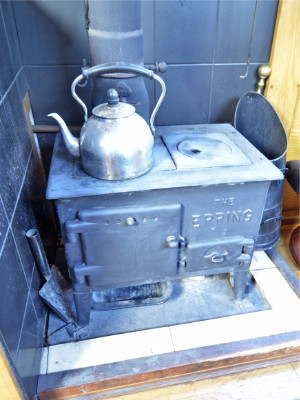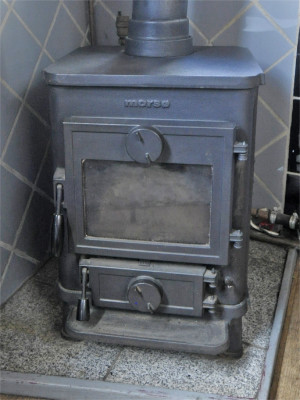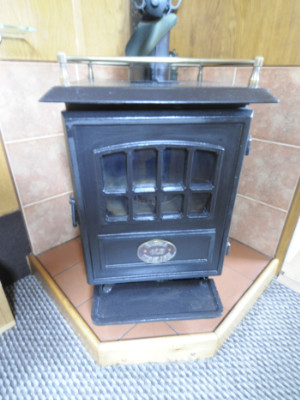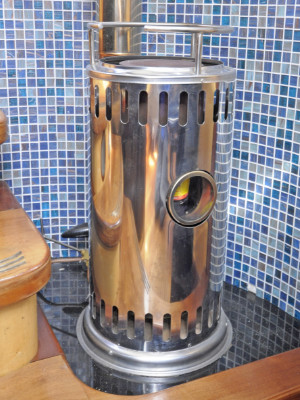Heating Systems
A question we are often asked is "How do you heat a boat in the winter?" Each heating system has its advantages and disadvantages. Many boats have two heat sources which should complement each other.
Solid Fuel Stove - space heater
Solid Fuel Stove - space heater
Solid Fuel Range with central heating
Solid Fuel Stove with central heating
Diesel Stove drip feed central heating
Diesel Stove drip-feed space heater
Solid Fuel Stove - space heater
Advantages
- Easy to light
- Quick to warm up
- May be able to burn logs*
- No battery power needed
Disadvantages
- Needs fairly regular attention
- Creates dust
- Not thermostatically controlled - but you can open doors and windows!
- Flue pipes need cleaning out
Solid Fuel Stove with central heating
Advantages
- Easy to light
- Stove is quick to warm up - rads will take longer
- May be able to burn logs*
Disadvantages
- Needs fairly regular attention
- Creates dust
- Rads may go cold when banked-down over night
- Not thermostatically controlled
- May use battery power to drive a circulation pump running continuously
- Flue pipes need cleaning out
Gas central heating (Alde Compact boiler)
Advantages
- Very user friendly / easy to control
- Thermostatically controlled
- Can have 7 day timer control of the circulation pump (but not the gas valve)
- Quiet and clean
- Room sealed appliance
Disadvantages
- Uses battery power to drive a small low amperage circulation pump
- Having to handle heavy gas cylinders
Diesel Stove drip-feed space heater (Bubble, Kabola, Refleks, etc)
Advantages
- Constant 24 hour heat
- Silent
- No mess
- Daily attention not required
- Runs off the diesel tank (or separate tank)
Disadvantages
- Manual heat control
- Slow response to heat control
- Diesel pan needs cleaning reasonably frequently
- If not a gravity diesel feed, it may use battery power to drive an electric fuel pump to supply the diesel
- Electric fuel pump, if fitted, can make a clicking sound
Diesel Stove drip feed central heating (Bubble, Kabola, Refleks, etc)
Advantages
- Constant 24 hour heat
- Silent boiler
- No mess
- Daily attention not required
- Runs off the diesel tank (or separate tank)
Disadvantages
- Manual heat control
- Slow response to climate changes
- Diesel pan needs cleaning every 8 weeks or so
- May use battery power to drive a fuel pump to supply the diesel
- Electric fuel pump, if fitted, can make a clicking sound
- May use battery power to drive a water circulation pump
Diesel central heating compact forced air burner (Eberspächer, Mikuni, Webasto, Hurricane, etc)
Advantages
- Very user friendly / easy to control
- Thermostatically controlled
- Can have 7 day timer control
- Clean
- Runs off the diesel tank (or separate tank)
- Hurricane units reported to be much more reliable than its competitors
Disadvantages
- Uses battery power to ignite the flame with a glow plug
- The glow plug carbons up if the batteries are low and may need regular cleaning
- Uses battery power for 2 motors running constantly whilst operating (air and circulation pumps)
- Electric fuel pump can make a clicking sound
- The exhaust can make a 'roaring' noise
- Fuses in the control box need cleaning periodically
- Needs regular servicing
- Hurricane units considerably more expensive than its competitors
WARNING: Several deaths have occurred on board boats because of blocked/restricted flues - be it soot, tar, spiders, rust, birds' nest, crushed pipes - whatever. Make sure you have your flue checked & cleaned on an annual basis, more often if you burn a lot of wood or not smokeless 'coal'.
*Wood burnt in stoves should always be well-seasoned otherwise there is a risk of flammable tar building up in the flue and also your roof will become a black sticky mess!

